Call it a poetic faith whose satisfying sense of wonder compelled them to stop short of that marvellous and enticing flame of Promethean enchantment. Heros zigzagging with tolerable chance.
“…in the preface to Tom Jones , Fielding formally asserted his belief that the beauty of goodness needed but to be seen ’to attract the
admiration of mankind’; in Jonathan Wild he appears to be already at work on the converse doctrine, that if the deformity of vice be but stripped naked, abhorrence must ensue. Such a naked criminal is Wild; and in the contemplation of his vices, as in the case of the arch hypocrite Blifil, in Tom Jones , and of the shameless sensualist ”My Lord,” in Amelia , Fielding’s characteristic compassion for the faults of hard pressed humanity is, for the time, scorched up in the fierceness of his anger and scorn at deliberate cruelty, avarice and lust.” ( Godden )
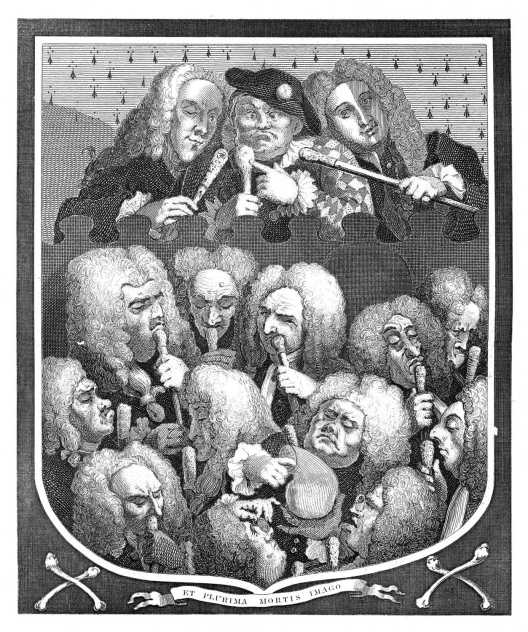
"In the time of Hogarth, medicine was a mystery, and there were three things which distinguished the physician,— his gravity, his cane-head, and his periwig. With these leading requisites, this venerable party are most amply gifted. To specify every character is not necessary; but the upper figure on the dexter side, with a wig like a weeping willow, should not be overlooked. His lemon-like aspect must curdle the blood of all his patients."
Because Tom Jones is Henry Fielding’s most fully-developed hero-model, he is naturally the central character in any study of Fielding’s novels, and illustrates how Fielding’s novels are always about the very nature of heroism in fiction. The plot of his journey to London and back to Somerset leads Jones to discover the value of prudence in self and the value of accepted standards and norms in society–a discovery that epitomizes Fielding’s conservative view of human and social order; while Jones travels, Fielding shapes and defines his role in the larger rhetorical structure of the novel. Thus Jones’ career as hero provides the model against which we can measure Fielding’s other heroes. And, perhaps, even other heroes of 18th-century fiction to the present …
Interestingly, throughout Fielding’s work there is a parallel narrative that is complementary at some level ,and which also seeks to reconcile itself with his sister and author, Sarah Fielding. Her centrality of a male protagonist unmotivated by phallic desire, with particular attention to ways in which he challenges critical assumptions about genre, gender, and the ideology of plot, likely gave Henry much material that would subtly inform his own work; particularly Sarah’s “The Adventures of David Simple” (1744) and its sequel, “Volume the Last” (1753). Sarah Fielding’s refusal to regard plot as a series of enactments of, or responses to, masculine erotic desire,was a consequential development: An arguement against the rote phallocentrism intrinsic to comedy and the novel generally and to comic closure in the novel specifically. ( Pettit)
…The truth, I am afraid, is that real taste is a quality with which human nature is very slenderly gifted. It is indeed so very rare, and so little known, that scarce two authors have agreed in their notions of it; those who have endeavored to explain it to others seem to have succeeded only in showing us that they know it not themselves. If I might be allowed to give my own sentiments, I should derive it from a nice harmony between the imagination and the judgment; and hence perhaps it is that so few have ever possessed this talent in any eminent degree. … ( Henry Fielding, 1752)
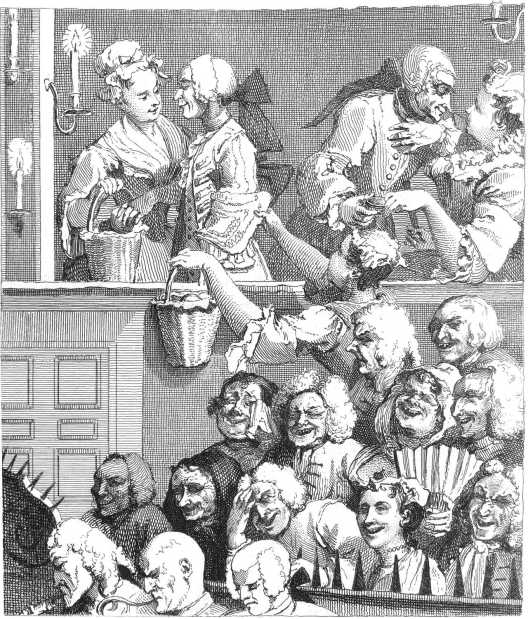
Nordquist:Generally recognized as one of the creators of the modern novel, Henry Fielding was also a successful dramatist, theater manager, journalist, and lawyer. As noted in the dedication of his comic masterpiece, Tom Jones (1749), Fielding's goal was "to recommend goodness and innocence" through comedy and satire.
“The History of Tom Jones” , the greatest of all English picaresque novels, was published in 1749. Fielding got 600 sterling for the copyright, and there is a tradition, that because it sold so well, the publisher later kittied up another 100. It brought Fielding immediate fame and the admiration of generations of novelists and critics: Coleridge, Scott, Thackeray, and many others. Every talent that Fielding possessed is displayed at its maximum capacity. The narrative is complex, yet every incident is vital to the story; not a scene could be cut out without marring the plot.
Although coincidences abound, and Chance zigzags through the lives of the characters like an erratic comet, Fielding’s exceptional care with precisely observed detail and realistic dialogue renders the adventures of Tom Jones completely plausible. Jones himself, with his gaiety, high animal spirits, and transparent good nature, never runs away with the book, for the other characters, from the major to the marginal, are equally vivid- as distinct and actual as the living people we know. Indeed, the veracity of Fielding’s character drawing in “Tom Jones” led William Hazlitt to write, “As a painter of real-life, he was equal to Hogarth; as a mere observer of human nature, he was little inferior to Shakespeare”; and Byron called him “the prose Homer of human nature.”

Fielding:In the exercise of the mind, as well as in the exercise of the body, diversion is a secondary consideration, and designed only to make that agreeable which is at the same time useful, to such noble purposes as health and wisdom. But what should we say to a man who mounted his chamber-hobby, or fought with his own shadow, for his amusement on
How much more absurd and weak would he appear who swallowed poison because it was sweet!…But as for the bulk of mankind, they are clearly void of any degree of taste. It is a quality in which they advance very little beyond a state of infancy. The first thing a child is fond of in a book is a picture, the second is a story, and the third a jest. Here then is the true Pons Asinorum, which very few readers ever get over. From what I have said it may perhaps be thought to appear that true taste is the real gift of nature only; and if so, some may ask to what purpose have I endeavored to show men that they are without a blessing which it is impossible for them to attain?… ( Fielding )
Yet none of these eulogies does Fielding full justice. One of the great subtleties of his character studies is the way he depicts his characters being molded by their social circumstances as well as by their innate desires. Squire Western, Blifil, Lady Bellaston, are unique individuals, in the fundamental structure of their personalities timeless, as all great characters in fiction should be; yet the nuances of their temperaments, the growth of their basic natures, had been developed by the conditions of eighteenth-century life. Fielding always, and most deliberately, called his novels “histories” : imagination lay only in the plot- incidents and character, circumstances and personalities, were drawn with all the accuracy and judgement Fielding could muster from his own experience of life.
Both Henry and Sarah Fielding were not in the least optimistic. Henry had a confident masculinity that translated into a virile, unsentimental projection devoid of neurotic insistence and, the analytical morass of a Samuel Richardson. Sarah Fielding’s position is profoundly feminist, and pessimistic. Perhaps intentionally, but in any case meaningfully,Sarah’s Fielding’s attempt to scramble the gendered codes of comedy falls apart when the novel “The Adventures of David Simple’s” malevolent characters destroy David and co-opt the social and economic benefits characteristic of comic closure. Not only is David unable to transcend generic habit, but he and his family are crushed by its parodic recrudescence.Pettit: “Fielding’s two works and a few contemporaneous novels that I note in passing suggest that what Patricia Meyer Spacks calls midcentury plots of “phallic power” are susceptible to principled attempts at attenuation but not, perhaps, finally to subversion. ”
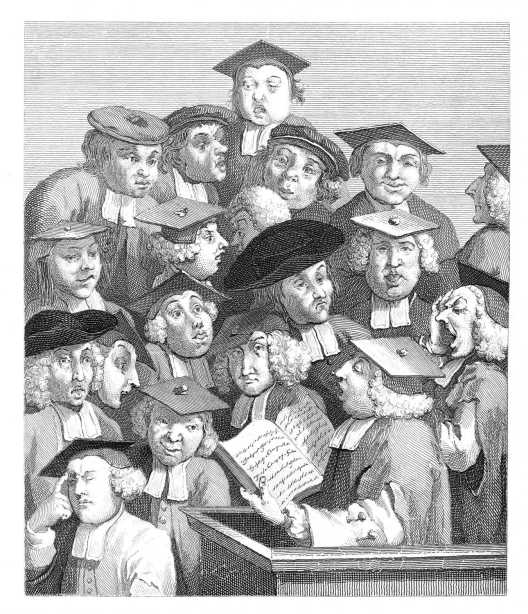
William Hogarth.John Trusler:The scene is laid at Oxford, and the person reading, universally admitted to be a Mr. Fisher, of Jesus College, registrat of the university, with whose consent this portrait was taken, and who lived until the 18th of March, 1761. That he should wish to have such a face handed down to posterity, in such company, is rather extraordinary, for all the band, except one man, have been steeped in the stream of stupidity.
In today’s world it is uncontroversial to regard closure in the novel as an affirmation of the fantasies of phallocentric culture. If this supposition is true, and generally it is for all intents and purposes, then it is fair game to regard deviations from this conventional scheme as threatening, even menacing to those fantasies and to the culture that promotes them. What is most astonishing is that the issues Sarah was raising are pertinent over 250 years later.
Sarah Fielding’s “deviation” is her attempt to represent the protagonist as a friend, a husband, and a father rather than a suitor. Fielding values masculinity positively not because her protagonist trips blithely from quest to conquest to conjugation, but because he operates in unsexed environments of social, specifically familial, behaviour. In this way, Fielding complicates the durable comic convention in which terminal marriage validates materially the protagonist’s moral progress and signals his worthiness for a life of bourgeois domesticity by declaring him free of the love-seeking complications that have constituted plot. David Simple, as Fielding announces on her title-page, is looking for a “real friend” rather than a wife. And although Fielding declares in “Volume the Last” that her character’s “Search in that respect was happily ended,”the sequel finds Simple struggling to make sense of a fund of incoherent data about friendship-about life, really in a way that distinguishes him from comedy’s confident initiates into the social mainstream.
Pettit: Disconcertingly, closure in Fielding’s novel declares companionate marriage inadequate to the demands of genre-twice. By the end of the 1744 work, Simple has found a wife (and two other friends), but not a solution to the problems of venality and so forth adumbrated in the novel’s opening sections. The novel ends as comic novels end, in marriage. But closure here does not do what comic closure generally does: reassert communal order along familiar and desirable erotic and economic lines. For nine years,
that is, Fielding invited her readers to regard David Simple as a troubling para-comedy, not, as her brother Henry would have it, as a “comic Epic Poem” confidently rendered in prose. Volume the Last completes the process of generic dismantling when it closes with the two central families quashed by their enemies. In neither work is Simple’s problem sexual, metonymically or ontologically, as, say, Tom Jones’s is. So it cannot be resolved by the generic conventions most basic to eighteenth-century fiction.
Henry Fielding was certainly aware of the issues Sarah was raising; it must have been perplexing to him and may have been responsible for his choice of narrative structure and use of rhetorical devices. There was a basic conservatism at work that opposed his sister’s radicalism or, he was aware but concentrated on the idea of style and man. In the eighteenth century, Man did not yet manifest himself in style. Instead, man himself was nothing but a manifestation of style. Also, in 1750 the notion of man was a more restrictive definition that represented a certain achievement, a “gentleman” and one had to take pains to earn that title. Fielding was engaging in a very rich experiment on the notions of rhetorical requirements that both reflected and revealed the highly stylized social interaction of the time. He was tinkering with the grammar of behavior; shredding the ornamental, artificial and stereotypical gestures of seduction and affectation.
Sarah Fielding also saw this world as one penetrated and corrupted by the imperatives of style. Man could only survive in that world as long as he remained in compliance with the discreet but forceful laws of style which governed all of his life- from the sphere of his public appearance to that of his not yet very intimate sexuality and to the sphere of the arts as well. Style was not so much a freely chosen attire, it was more like a straightjacket, at least from our perspective, and although were are a few standard deviations further along, we are still rooted in the contradictions both Fielding’s articulated.
“Rather, the uniformitarian tendencies of comedy rout those characters who have been willing but unable to effect comedy’s goals.
All this suggests a state of affairs that a more self-serious critic might call a “generic crisis.” The anti-phallic male threatened the novel’s narrative stability at a time when the novel was internalizing the formal structures of comedy, most notably in the landmarks Pamela (1740-41) and Joseph Andrews (1742). But Sarah’s putatively “comic” experiment in fact ends in the capitulation of the counter-generic family to the cultural practices celebrated in comedy: seeking, finding, belonging, and getting and spending.”
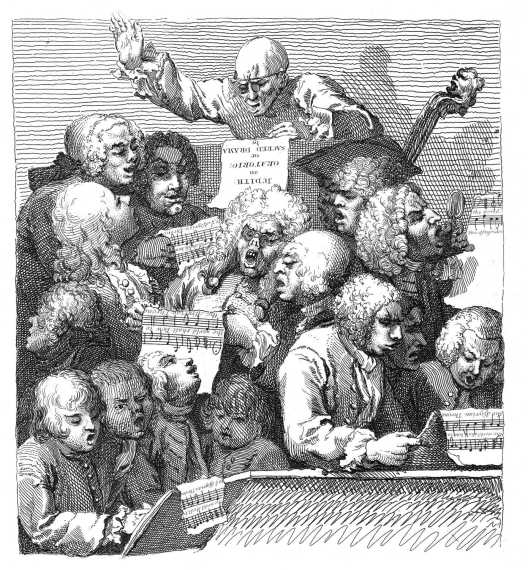
Trusler:As De Fesch2 was a German and a genius, we may fairly presume it was well set; and there was at that time, as at this, a sort of musical mania, that paid much greater attention to sounds than to sense; notwithstanding all these points in her favour, when the Jewish heroine had made her theatrical début, and so effectually smote Holofernes, ——"As to sever His head from his great trunk for ever and for ever.” the audience compelled her to make her exit. To set aside this partial and unjust decree, Mr. Huggins appealed to the public, and printed his oratorio. Though it was adorned with a frontispiece designed by Hogarth, and engraved by Vandergucht, the world could not be compelled to read, and the unhappy writer had no other resource than the consolatory reflection, that his work was superlatively excellent, but unluckily printed in a tasteless age; a comfortable and solacing self-consciousness, which hath, I verily believe, prevented many a great genius from becoming his own executioner. To paint a sound is impossible; but as far as art can go towards it, Hogarth has gone in this print. The tenor, treble, and bass of these ear-piercing choristers are so decisively discriminated, that we all but hear them.
ADDENDUM:
Larry Laban:More overtly and intentionally than in his other fiction, Fielding develops character and plot in Tom Jones to dissect and define the nature of the hero in the rhetorical structure of the newly-emerging novel form. Jones acts the role of traditional hero (discussed at length in an earlier section of this study) in relation to other characters and a new kind of hero in relation to the structure of the novel. Although critics have always emphasized the importance of Jones’ life as a moral fable, we must remember that Jones is primarily the exemplary hero of fiction not of the real world–the hero of a comic novel, not of a rational world, whose method of characterization is primarily objective and external.
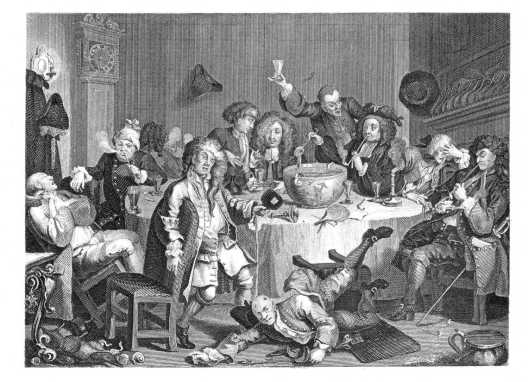
Laban:A more important system of contrasts focuses on a series of individuals who represent more typical hero-types (moral, religious, romantic, and martial), against whom Jones is contrasted. Jones' heroism is delineated against false conventional notions, against the meaningless and destructive application of labels to human character, and against the failures of ideal role models. The narrator emphasizes the importance of contrast as the primary method by which we evaluate character in fiction: "The Vices of this young Man...
We are hardly ever permitted the intimacy of Jones’ mind, heart, or soul (McKillop, Early Masters 129; Stumpf 3-21). At moments when we might expect this intimacy–when he repents in prison, for example–Jones feels and speaks in eighteenth-century cliches, not in the language of personal individual experience. Nor does Jones himself change in any fundamental way during the course of the novel, as we might expect from a character who is learning important moral lessons. Instead, the complexities and conventions of the plot and rhetorical structure lead the reader through a process of changing notion of the heroic (guided by the narrator). The same character who acts the very fallible non-Christian hero of the comic novel that is the beginning of Tom Jones is the worthy ideal hero of the idealized romance that is the conclusion. The plot of the novel rewards Jones for his recognition and acceptance of the true value of Prudence and the appropriate place of Benevolence in a world of Divine Providence. But the rhetorical structure of the novel tells us that this world is a fiction, and the rewards come only in romance not in life (please recall my earlier comments about Fielding’s putting distance between literature and life).
Matthew Wickham:To an extent, the phenomenon that becomes evident in this comparison between Fielding and Burney is the gradual institutionalization of literature in its modern conceptual form as imaginative or creative writing. However, this institutionalization was itself part of a broader collective manifestation of anxiety. Beginning with the Gothic revival of the 1730s, the literate public became more attuned to the genius loci of churchyards, ruins, and enchanted forests as emblems of Britain’s unique but increasingly estranged past. In his Letters on Chivalry and Romance (1762), Richard Hurd constructed a material history of the prose forms of this bygone age as “the natural and even sober effect of the feudal policy.” Over the course of time, Hurd argued, reason, learning, and progress had driven romance “off the scene,” and converted it from a faithful representation of “feudal manners” to a distortion that modern writers such as Fielding had rightly repudiated.
Hurd expressed ambivalence, however,when summarizing the effects of such rationalized progress: “What we have gotten by this revolution [of manners and reason] … is a great deal of good sense,” but “What we have lost, is a world of fine fabling. ” Hurd’s formulation is significant, since it evokes a spirit of modernity that asserts its own divergence from the past. And while the basis of this divergence is, in Hurd’s view, institutional, its consequence is affective: we experience the world differently, and perhaps less vibrantly, than our ancestors. And yet, a subtle inversion accompanies Hurd’s lament. If we lack the “fine fabling” of previous eras, and if as a result we behold the world with a diminished sense of wonder, then our knowledge of our predecessors’ experience of it through artifacts such as romance makes our experience, by comparison, one of lack.
But if this is the case, then the romantic tales they experienced as reality are ones that we experience primarily as desire. We therefore welcome as literature what our forebears regarded as history. Hence, in a modern era, so this argument goes, we recover the intensity of experience through a desire that takes the cultural form of imaginative literature.


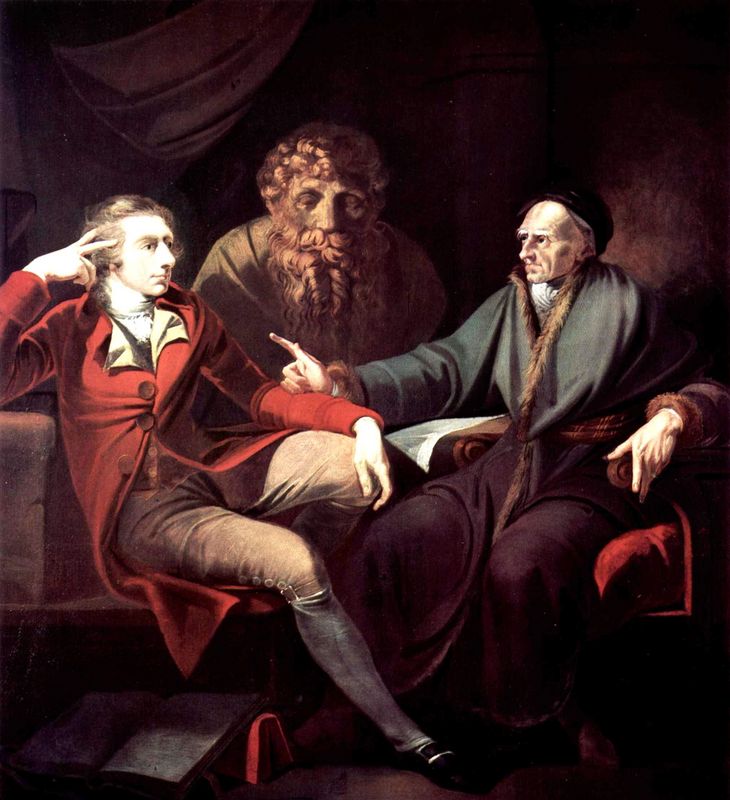

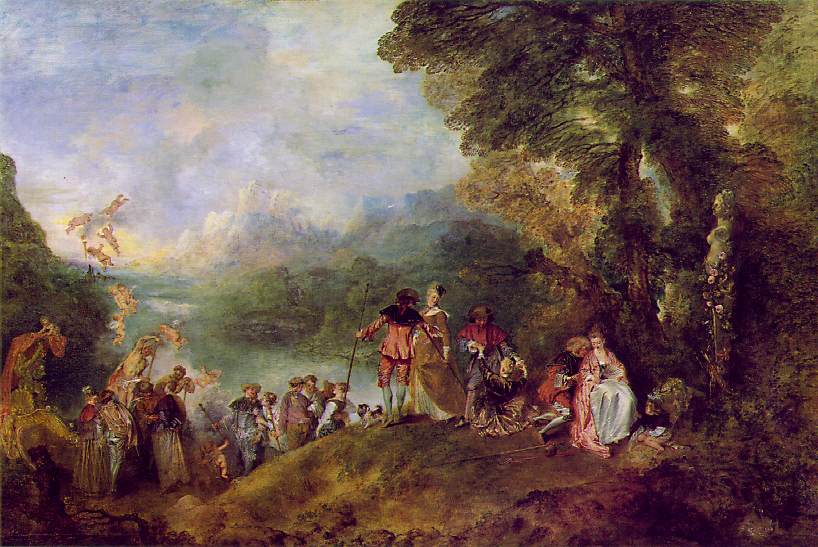



 COMMENTS
COMMENTS